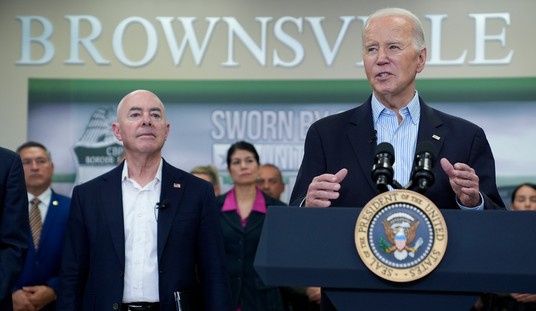Most people don't associate the concept of restraint with a federal government that's spending taxpayer dollars at a rate of $7 million a minute and passing so many new regulations that the Code of Federal Regulations is now over 175,000 pages, and growing.
But give credit where credit is due. The Feds have shown remarkable restraint and foresight when it comes to not burdening the Internet with unnecessary regulations and taxes. Ever since the Internet emerged as a consumer tool in the early 1990s, politicians and regulators recognized that the technology was developing in ways they couldn't predict. Instead of legislating yesterday’s Internet, they decided to let it evolve with minimal government intrusion into the Internet we have today.
Washington has held to this "light touch" approach and the benefits speak for themselves: the web has transformed the way we live, work, and play. America is the undisputed Internet creativity capital of the world with companies like Facebook, Google, and Twitter being household names the world over.
It is fair to say that everybody wants to see this boundless innovation continue. There are two Internet issues heating up in our nation's capital that may put a grinding halt to that.
The first question is downright scary. Should America change course and impose more regulations on the Internet with the kind of burdensome regulatory restrictions that applied to the Ma Bell era of telephone monopolies?
This could happen if the Federal Communications Commission (FCC) moves forward with net neutrality and bows to the pressure of some Internet elites who want to reclassify Internet services under Title II of the Communications Act. Title II is a land of smothering utility-style regulation. Banishing the Internet to that innovation-hostile environment would mark the end of America's successful romance with minimal Internet regulation.
Recommended
The downside for taxpayers and the economy as a whole are stark.
Instead of having an innovative Internet ecosystem where producers are free to innovate and buyers free to choose from boldly competitive offers, we'd have a timid ‘Mother may I’ system propped up by government subsidies and run by bureaucrats at the taxpayer’s expense. And would anyone want to see today's broadband Internet services in an environment where every new product and promotional offer had to be pre-approved by a government panel?
That's the reality of regulations under Title II. I shudder to think what that kind of intrusive regulation would do to the private investment capital flowing into the broadband industry at the rate $70 billion a year and rising. Reclassification under Title II would raise a red flag on the investment and innovation that makes America's broadband Internet market unique in the world.
Unlike the seemingly never ending “net neutrality” debate, the second issue is urgently time sensitive. On November 1, the Internet Tax Freedom Act (ITFA), which has kept state and local taxes from being applied to Internet access, expires. If the Senate does not follow the House in passing a version of the bill—at least a temporary moratorium—all Internet users will face a new tax on Internet access that could be high as twice the average state sales tax rate.
Allowing ITFA to expire—or even lapse—could affect millions of American consumers, students, and small businesses who depend on Internet access. At a time when the Internet is more crucial than ever, there is no reason why Congress should discourage further growth and access to the Internet with a new tax.
Banning Internet access taxes and refusing to saddle the Internet with old-time utility regulations would reinforce the federal government's light-touch approach to the Internet. We've got a good thing going, let's not throw it away.




















Join the conversation as a VIP Member